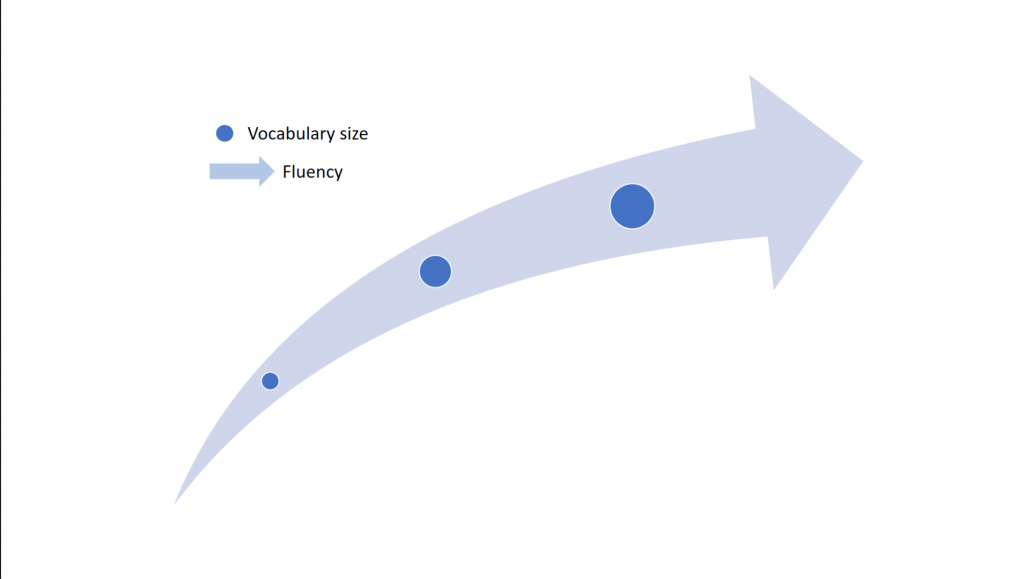
Do you remember those days when you were a beginning language learner and you became easily frustrated during speaking activities? Remember the feeling of hopelessness when you got stuck searching for words to express your thoughts? You had something great to say, but you may have remained silent more than you should have had simply because you lacked the words. Thankfully, you didn’t give up: you kept building your vocabulary and your fluency grew.

Now that you are a proficient speaker and know how language development works, you understand the key role of vocabulary in this process: there is a direct relationship between fluency in a second language and the number of words we know in that language. Our students are not so aware of this fact, though.
Rather than telling my students that vocabulary is important, I prefer to make them discover it for themselves. Actually, I think that guided self-discovery is the most powerful way of raising students’ metalinguistic awareness about any aspect of language learning, not only vocabulary building.
Let me share with you one way in which my students become aware of the importance of learning new words on a regular basis, not just before a test. The second unit in my Intermediate Spanish I focuses on the vocabulary of the house and chores (I should add that I teach college-level learners). At the very end of the first class session dedicated to this unit, after practicing some of the new words through comprehensible input activities and structured output exercises, my students record an Extempore task with this prompt: “In about 1 minute, describe the distribution of chores at your parents’ house and where you live now. Talk about the things you do at both places and the chores you don’t do, or don’t like to do. Talk at least about 5 different chores.” Also, I use the Time to Review feature and only give students 15 seconds to think about their answers before they record.
As a follow-up, students listen to their own recording and self-assess their performance on vocabulary on a scale from 1 to 5: a score of 1 means they only incorporated one or two new words, while a score of five means that they used more than five of the new words.
At the beginning of the fourth class session dedicated to this unit, I ask my students to repeat the recording in response to the same prompt, and again with only 15 seconds to think about their answers. The follow-up self-assessment this time also includes a reflection on their fluency. After they submit the second recording, they need to listen to the one they submitted at the beginning of the unit and compare two things: the number of new words they used in each and how fluent they sound each time.
Not surprisingly, those who keep up with their regular homework and practice the new words in and out of the classroom, consistently report that the second recording went way better than the first one. Conversely, those with poorer homework habits, who tend to postpone learning the new words until the day before the test, perform the same or perhaps even worse the second time. In case you are wondering why they would do worse (after all, the second recording happens after a week of instruction), notice that both recordings differ in when they occur during class time. The first time, students record at the end of class time and they can use the few words they have already stored in their short-time memory during that day’s lesson. The second time, students record at the very beginning of class time and they need to access the words they have already internalized. That’s why those who don’t put much effort on practicing outside of class, can’t remember many of the new words when asked to use them without preparation.

Apart from the speaking practice, what this exercise does for my students is to demonstrate in a more tangible way that learning vocabulary is a key aspect of language development. If students’ goal is to become fluent in the target language (and not just pass the tests and vocabulary quizzes), they need to purposely maintain a regular habit of vocabulary practice in and outside of the classroom. The greater their vocabulary knowledge, the more fluent they’ll sound.


